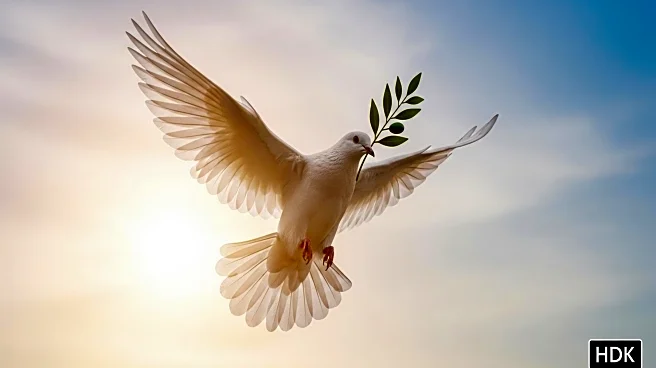What's Happening?
On September 28, 2025, the Taliban government in Afghanistan released U.S. citizen Amir Amiry from prison following a prisoner exchange agreement with U.S. envoys. This development was facilitated by Qatar, marking the fifth American freed from Afghan detention this year through the Gulf nation's security partnership efforts. The release comes amid ongoing efforts by the Taliban to break international isolation since they seized power in 2021. The U.S. State Department and Afghanistan's foreign ministry issued separate statements confirming the release, with Secretary of State Marco Rubio welcoming Amiry's return. Despite this progress, at least three other Americans remain detained in Afghanistan, according to a U.S. official who spoke anonymously due to lack of authorization to discuss the matter publicly.
Why It's Important?
The release of Amir Amiry is significant as it highlights the ongoing diplomatic efforts between the U.S. and Afghanistan, facilitated by Qatar, to resolve the detention of American citizens. This event underscores the complex geopolitical dynamics in the region, particularly as the Taliban seeks to improve its international standing and reduce isolation. The involvement of Qatar as a mediator reflects its growing role in international diplomacy, especially in conflict resolution. The continued detention of other Americans indicates that while progress has been made, challenges remain in securing the freedom of all U.S. citizens held in Afghanistan. This situation impacts U.S. foreign policy and its approach to dealing with the Taliban government.
What's Next?
The release of Amir Amiry may lead to further negotiations between the U.S. and the Taliban regarding the remaining American detainees. The U.S. government is likely to continue diplomatic efforts to secure their release, potentially involving other international partners. The Taliban's willingness to engage in prisoner exchanges could signal a shift in their approach to international relations, possibly opening avenues for broader discussions on humanitarian and political issues. Stakeholders, including political leaders and human rights organizations, may increase pressure on the Taliban to ensure the safety and release of all foreign detainees.
Beyond the Headlines
The prisoner swap raises ethical and legal questions about the conditions under which foreign citizens are detained and the transparency of such processes. It also highlights the role of third-party nations like Qatar in mediating complex international disputes. The situation may influence long-term diplomatic strategies and alliances in the region, as countries navigate the balance between engaging with the Taliban and addressing human rights concerns.










